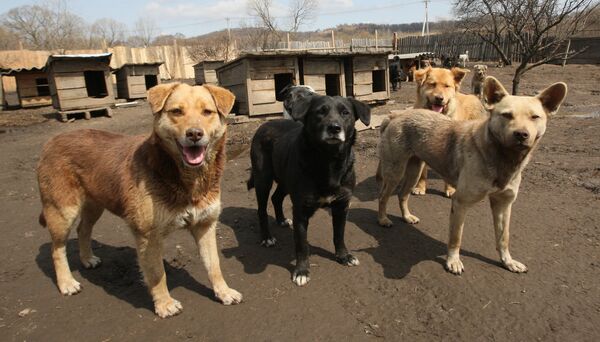MOSCOW, March 7 (RIA Novosti) – The alliance between man and his best friend may be at least 19,000 years older than previously confirmed, according to a new study of the DNA of an ancient canid fossil from the Altai Mountains in Russia.
The oldest confirmed evidence of canid domestication – a dog buried with a human – is from 14,000 years ago, but experts still debate the exact date of emergence of a domesticated dog morphologically different from wolves.
Some archeological finds, including the 33,000-year-old “Altai dog,” discovered in a cave in southern Siberia in 1975, were of canids more similar to modern dogs than wolves. But skeptics have surmised that these could have been “morphologically unique wolves” and not early domesticated dogs.
However, a new international study led by the Department of Genomic Diversity and Evolution of the Novosibirsk-based Institute of Molecular and Cellular Biology showed the Altai dog had more in common with modern-day dogs and extinct American canids than grey wolves.
The study, published in peer-reviewed scientific journal PLoS ONE on Wednesday, compared genetic material from the Altai dog to dozens of extant and extinct dogs, as well as wolves and coyotes.
“Some theories claimed that wolves could sometimes produce dog-like forms that had no genetic relation to modern dogs. This research indicates [the existence of] such relation between the ancient Altai dog and younger American and modern dogs,” study co-author Vladimir Trifonov told RIA Novosti.
The findings are preliminary, and further research is needed to establish the Altai dog’s exact link to other wolves and dogs of the Pleistocene epoch, which ended about 12,000 years ago, Trifonov said.
The oldest known example of a dog-like canid comes from the Goyet Cave in Belgium and is 36,000 years old.
Early domestication could have been curtailed due to climate fluctuations, and the process only completed when humans began the transition from nomadism to a sedentary lifestyle around 17,000-18,000 years ago, Yaroslav Kuzmin, a geoarcheology expert with the Institute of Geology and Mineralogy in Novosibirsk, said in 2011, when the Altai dog was first estimated to be 33,000 years old.



